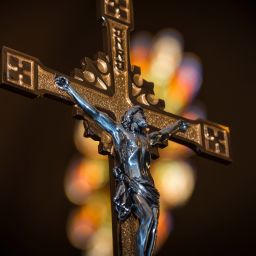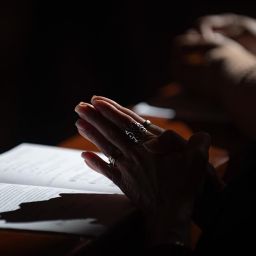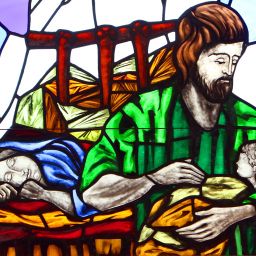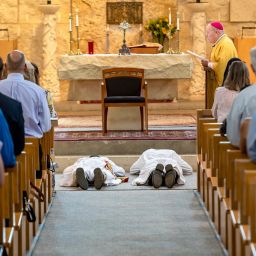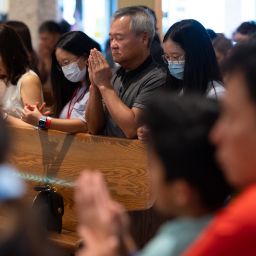By Father Thomas Esposito, O.Cist.
Special to The Texas Catholic
While awaiting a sham trial and certain execution for high treason, Thomas More prayed and wrote. Henry VIII had declared himself head of the Church of England, and the Catholic More, who had served the king loyally as chancellor, refused to break his spiritual allegiance to the pope. He was utterly alone at this hour of his life; his beloved wife and children implored him to overcome his scruple of conscience and sign the Oath of Supremacy. More clearly regarded his own suffering as an imitation of his Lord; his most beautiful prison writing is “The Sadness of Christ,” a meditation on the garden agony of Jesus, the innocent suffering servant.
Among the other prayer pages to survive, “A Meditation on Detachment” begins with a petition: “Give me thy grace, good Lord, to set the world at naught; to set my mind fast upon thee, and not to hang upon the blast of men’s mouths.” What follows is a series of petitions one would, frankly, expect a saint to make when seeking God’s help: “…to walk the narrow way that leads to life, to bear the cross with Christ … to have the last thing in remembrance … to make death no stranger to me … of worldly substance, friends, liberty, life and all, to set the loss as nothing for the winning of Christ.”
But then More stuns the reader (this reader, at least) with an audacious request. He prays for the grace “to think my greatest enemies my best friends; for the brethren of Joseph could never have done him so much good with their love and favor as they did him with their malice and hatred.” Given his status as a betrayed man condemned at a whim of the capricious and schismatic king, the petition can scarcely be believed. Surely Thomas More exaggerates; what could possibly have motivated him to perceive the malice and hatred of his enemies as signs of God’s providential care?
More knew he was enduring his own Gethsemane, but he also recognized that the patriarch Joseph traveled a similar sorrowful road. The beloved son of Jacob who dons the amazing technicolor dreamcoat while his brothers look on, Joseph loses the coat when his envious brothers throw him into a well and then sell him into slavery. Taken to Egypt, where he is imprisoned before coming to the attention of the Pharaoh and saving the kingdom from years of famine, Joseph spares his own brothers from death when they beg him for grain, not knowing that their earthly savior is the brother whom they betrayed. In an unforgettable scene, Joseph simultaneously reveals himself to his brothers and reads the narrative of his own life from the vantage point of providence:
“I am your brother Joseph, whom you sold into Egypt. But now do not be distressed, and do not be angry with yourselves for having sold me here. It was really for the sake of saving lives that God sent me here ahead of you. The famine has been in the land for two years now, and for five more years cultivation will yield no harvest. God, therefore, sent me on ahead of you to ensure for you a remnant on earth and to save your lives in an extraordinary deliverance. So it was not really you but God who had me come here; and he has made me a father to Pharaoh, lord of all his household, and ruler over the whole land of Egypt.” (Genesis 45:5-8)
Joseph recognizes the orchestration of providence, literally, divine “foresight,” in the terrible betrayals and humiliations of his life. Had his brothers not acted so treacherously against him, he would not have been in a position to save them years later. Saint Thomas More might have hoped that a similar deliverance would come to him; but I suspect that he knew his witness of conscience and courage would bear fruit in the conversion and encouragement of others, long years and even centuries after his martyrdom. May our prayers, especially those for our enemies, be so tinged with trust in providence.
Father Thomas Esposito, O.Cist., is a monk at the Cistercian Abbey of Our Lady of Dallas and teaches in the theology department at the University of Dallas.



